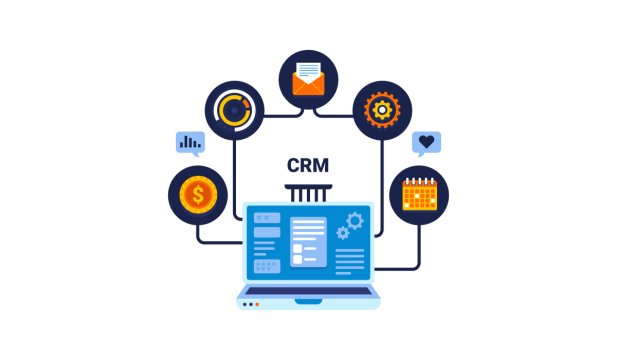In today's rapidly evolving business environment, New Zealand companies face increasing pressure to modernize operations and improve customer experiences. Standard off-the-shelf software often falls short in meeting the growing demand for scalability, personalization, and integrated workflows. These generic platforms typically require businesses to adapt to the software rather than the other way around, creating inefficiencies and missed opportunities.
As a result, many organizations are turning to custom CRM and ERP software to stay competitive in 2025. These tailored solutions enable smoother communication between departments, provide data-driven insights for faster decision-making, and automate essential processes that once consumed valuable time. For businesses aiming to achieve long-term growth and operational resilience, embracing these custom tools has become less of an option and more of a necessity.
Benefits of CRM ERP software built to fit your business
For New Zealand businesses across industries like retail, manufacturing, logistics, and professional services, choosing to develop custom CRM software ensures that every customer interaction and internal process is designed around their unique requirements. Unlike generic solutions, custom CRM platforms can integrate seamlessly with existing tools, comply with local regulations, and deliver region-specific analytics that help uncover market trends.
Similarly, personalized ERP systems offer the ability to unify operations across inventory, procurement, HR, and finance—creating one centralized hub for business management. This level of integration allows teams to work more efficiently, eliminates redundant tasks, and provides real-time visibility into the entire organization’s performance.
By aligning technology with a company’s long-term strategy, businesses can reduce costs, improve decision-making speed, and ultimately deliver better service to their customers.
Key features to include in your CRM and ERP software
When building a tailored solution, New Zealand business owners should focus on modules that directly improve operational efficiency and enhance customer engagement. On the CRM side, features like lead tracking, automated sales pipelines, AI-driven analytics, and omnichannel communication can drastically improve sales performance.
On the ERP side, essential tools may include multi-location inventory tracking, supplier coordination, integrated accounting systems, and comprehensive reporting dashboards. These help managers make informed decisions and respond quickly to changes in demand or market conditions.
Another critical factor is scalability. The software should be flexible enough to grow with the business, avoiding expensive and disruptive overhauls in the future. Additionally, strong cybersecurity protocols and automated data backups are vital to safeguard sensitive company information.
Choosing the right partner for development
Selecting an experienced partner for custom ERP software development is essential to ensuring success. The ideal development team should understand New Zealand’s unique market dynamics, regulatory framework, and industry-specific needs. This includes awareness of GST compliance, regional tax obligations, and the logistical challenges of operating across a geographically diverse country.
Working closely with such a partner allows businesses to design a solution that is both technically sound and strategically aligned. This collaboration also minimizes costly reworks and ensures that the software meets practical day-to-day operational needs.
Common challenges and how to solve them
While the advantages of custom CRM and ERP systems are clear, businesses may encounter challenges such as higher upfront development costs, integration issues with older systems, or employee resistance to adopting new tools. These can be mitigated with phased rollouts, clear communication of benefits, and hands-on staff training.
Adopting a modular build approach also allows companies to implement features gradually, spreading costs over time and giving teams space to adjust. Dedicated onboarding support and ongoing maintenance further ensure that the system delivers value over the long term.
The global edge: learning from outside expertise
Partnering with a software development company in Dubai can provide access to international best practices, cutting-edge technology stacks, and a wealth of cross-industry experience. Dubai-based firms often work with clients across multiple continents, enabling them to design solutions that are both globally competitive and locally adaptable.
For New Zealand companies, tapping into this expertise means not only optimizing current operations but also preparing for future expansion into global markets.
Final words
In 2025, the businesses that will thrive in New Zealand are those that leverage technology to work smarter, not harder. Custom CRM and ERP software solutions deliver the flexibility, integration, and control that off-the-shelf systems simply can’t match. By selecting the right development partner and investing in tailored tools, companies can streamline operations, enhance customer relationships, and secure a lasting competitive edge.




























